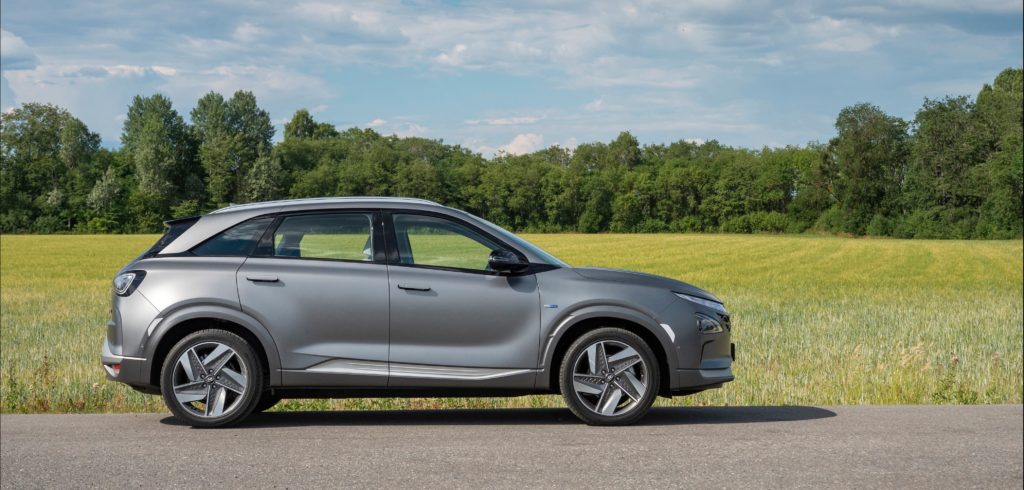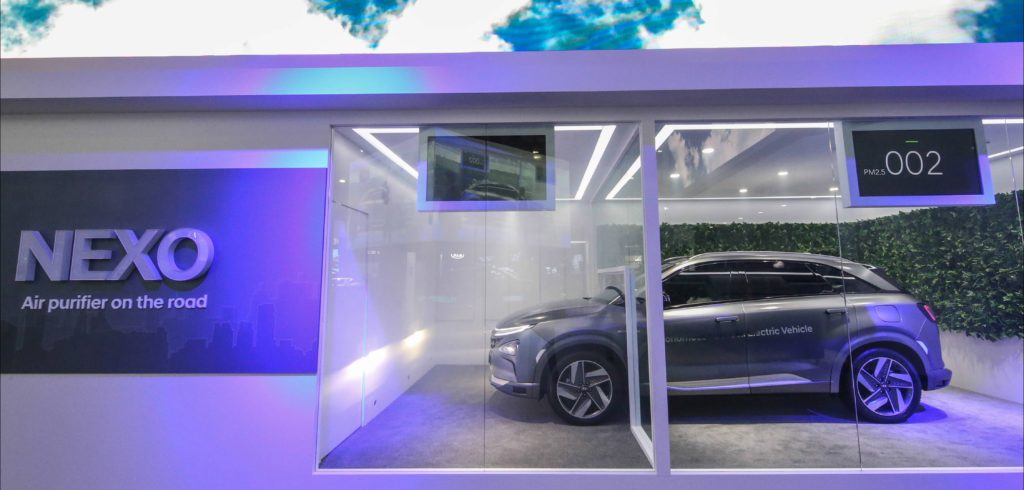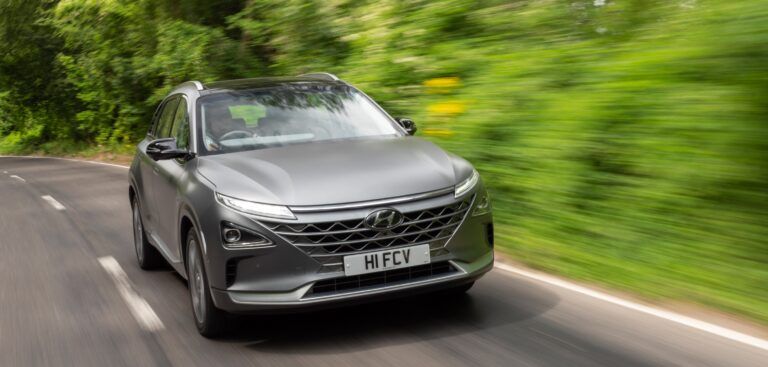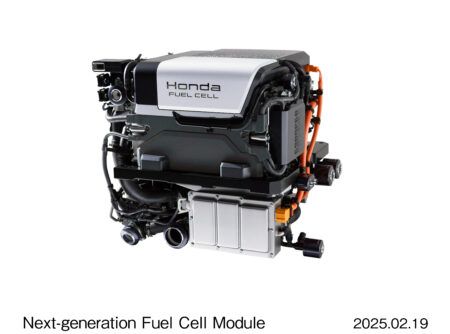Ashley Andrew, managing director of Hyundai Motor UK discusses the potential of hydrogen fuel cell vehicles, how and why the company is working on the technology, and details of its first HFCV, the Nexo.
I think a lot of car buyers in the UK might be a little surprised to find out that Hyundai is a world-leader in Hydrogen Fuel Cell vehicles. My kids certainly were, when I first took them out for a drive in Hyundai’s hydrogen-powered Nexo, but now they’ve settled on simply calling it ‘The Future’.
Whether that has more to do with its NASA-inspired zero emissions powertrain or the fact my daughter was able to Snapchat a video of Nexo parking itself with none of us in the car is really up for debate. But for me, there’s no question, this hydrogen technology is absolutely fascinating.
For the uninitiated, Nexo is our first bespoke Hydrogen Fuel Cell vehicle. Capable of travelling 414 miles on a fill-up of hydrogen, it emits only water vapour and even cleans the air of pollutants as you drive. Writing that still makes me smile – a car that actually leaves the air cleaner, not dirtier.

The question ‘why hydrogen?’ was one that I put to our experts in Korea recently. One man, an industry expert of more than 20 years, answered the question with more clarity than anyone else I’ve met; batteries are fine, he told me, in private cars but the issue gets worse in large commercial uses; ships, planes, buses or trucks.
I don’t know about you, but I have seen signs of hydrogen technology taking root in Britain. A number of hydrogen buses have actually been running in London on the RV1 route since 2010. Where normal buses would noisily rattle down the street leaving cyclists and pedestrians in a cloud of fumes, the fuel cell buses are quiet, serene and clean, which does make me wonder what London would be like with just hydrogen buses running. Chris Grayling, the UK’s transport secretary also announced a while ago that he was looking to add hydrogen trains to the network in the near future, too.
And why stop there? I’m always reading about the effects of shipping on the environment; 15% of greenhouse gas emissions in the EU during 2015 came directly from it. Likewise, heating our homes is a massive contributor. Both, I’m told, can be solved with the introduction of hydrogen technology.
But before I get too carried away, you may remember just a few paragraphs earlier, me evangelising about our hydrogen vehicles. But my own personal experience tells me we’re still in the early days of this technology; we need more refuelling stations to make it mainstream. The way Hyundai has gone about this is – I think – very clever. Let me explain.

Hyundai recently agreed a fuel cell cross-licensing partnership with Audi which allows them access to our fuel cell components and to our supply chain. At first glance that may be a strange move, to give away decades of costly, cutting-edge research and development. But in the early days of petrol cars you had to find a pharmacy to sell you some petrol, until there was enough demand that people realised there was a business in selling fuel. So, the more hydrogen cars that are being built, the quicker the infrastructure will develop.
It’s working, too, and I’ve seen the results first-hand. At Beaconsfield Services, in the UK, the hydrogen filling station sits alongside the petrol and diesel pumps like any other. Personally, I think that’s where we’ll be for the next decade at least; a transitional period of all fuel choices.
Alongside Beaconsfield, there are six other publicly accessible stations in the UK including one at Cobham Services in Surrey and more stations are coming in Derby, Birmingham, London and Gatwick with 65 planned by 2030. Whilst in Europe, a consortium in Germany is looking to build 400 hydrogen refuelling pumps by 2025.
Most exciting of all to me, though, is the idea that we can create hydrogen on-site at fuelling stations from renewable energy. No big trucks transporting it for miles, or burning fossil fuels to create it. At the Advanced Manufacturing Park, just two miles from the M1, ITM Power a specialist in manufacturing such hydrogen energy systems, has launched a hydrogen refuelling station where a wind turbine provides power for an electrolyser, which in turn splits water into hydrogen and oxygen, then stores the hydrogen ready to refuel a passing fuel cell vehicle.
This one single example gives me great hope for the future. With a mix of renewable energy and clean hydrogen we have the perfect solution for a pollution-free future; whether that’s domestic or industrial.
I’m no expert, but I’ve got an insight into hydrogen technology that many people might not have. And to me, it seems like my kids were spot on; it’s the future.





